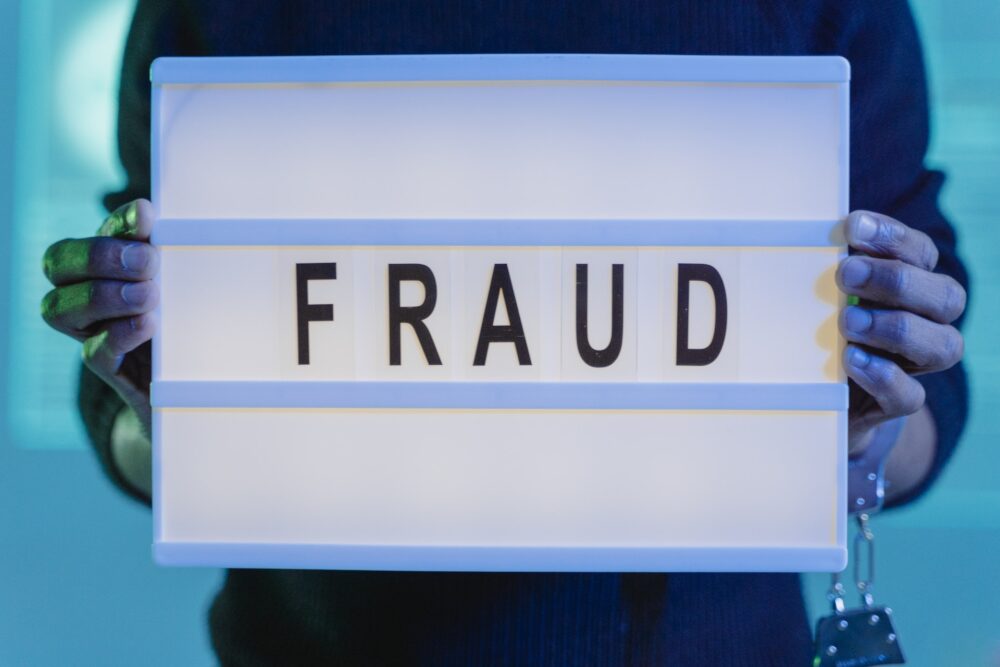
Unfortunately, financial scams are pretty common. In 2021 alone, consumers reported losing more than $5.8 billion to fraud. Scams can often be hard to spot, especially debt collection fraud. Debt collection scams occur when fraudsters try to collect a debt you don’t owe. But if you have past due debt, legitimate debt collectors may contact you and try to get you to repay it. So how can you tell the difference between a legitimate debt collector vs scammers? Here are some tips to help you determine whether you’re dealing with a real collector or a fake one.
5 Differences Between a Legitimate Debt Collector vs Scammers
Scammers May Threaten You
Thanks to the Fair Debt Collection Practices Act, real debt collectors aren’t allowed to threaten you or verbally abuse you. So if a supposed debt collector threatens to tell your family, friends, and employer about your debt, you may be talking to a scammer.
Fraudsters might also claim that you’ll be hauled off to jail if you don’t pay within a day or two. However, unless you haven’t paid a criminal fine, you won’t face jail time over a past due debt. So don’t fall for these high-pressure scare tactics.
Fraudsters Might Call at Odd Hours
Real debt collectors usually won’t call you late at night after 9 PM or early in the morning before 8 AM. So if you receive a call from someone claiming to be a debt collector at an odd hour, it may be a scam.
Scammers Are Vague
Legitimate debt collectors know that they’re obligated to provide you with certain details about your debt, such as the creditor and amount owed. If the collector is talking about your debt in vague terms and is unable to answer basic questions about the type of debt and interest rate, that may be a red flag.
Scammers Will Ask for Untraceable Payments
Another way to tell the difference between a legitimate debt collector vs scammers is the payment method they ask for. To avoid getting caught, scammers will insist that you use an untraceable payment method like a gift card or wire transfer. If the debt collector won’t accept a trackable form of payment like a check, be wary.
Scammers May Try to Steal Personal Info
Legitimate debt collectors usually have access to personal information such as your social security number and date of birth. Although they typically need to verify your identity at the beginning of the call, legit collectors probably won’t press you for personal info the whole time. If you feel like the debt validation letter is trying to pressure you into sharing lots of sensitive personal data, they may actually be a scammer trying to steal your identity.
How to Avoid Getting Scammed
Taking steps to verify that the debt collector you’re dealing with is legitimate is the best way to avoid getting scammed. Don’t hesitate to ask for the debt collector’s name and the contact info of the company they work for so you can look them up online. You can also reach out to the original creditor and ask if they work with the debt collection agency that contacted you.
Additionally, you can ask the debt collector for a debt validation letter. It provides more information about the debt such as the creditor and amount owed. If the collector fails to send you this letter, you may be dealing with a scammer. After you get the letter, you can dispute it if you believe you don’t owe the debt. You can also ask the creditor to send you evidence that the debt is yours if you’re unsure.
Don’t let yourself be pressured or intimidated into paying right away. Make sure that the debt collection agency is legitimate and the debt is valid before you agree to pay.
Have you ever been contacted by a fraudulent debt collector? How did you figure out they were a scammer? Share your tips in the comments!
Read More:
Can Your Bank Refuse To Refund Fraud Charges?
Use These 5 Tips to Avoid Credit Card Fraud
Come back to what you love! Dollardig.com is the most reliable cash-back site on the web. Just sign up, click, shop, and get full cashback!
Vicky Monroe is a freelance personal finance and lifestyle writer. When she’s not busy writing about her favorite money saving hacks or tinkering with her budget spreadsheets, she likes to travel, garden, and cook healthy vegetarian meals.





Comments